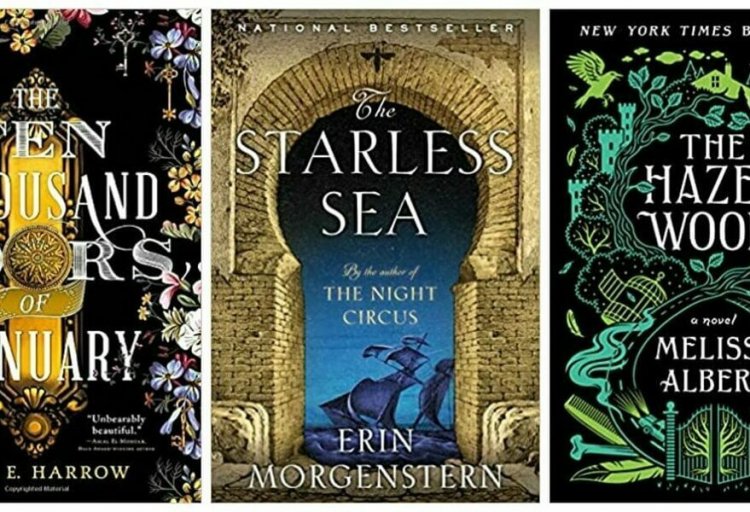Ask a random parent at the playground if they know who Melissa Bernstein is, and you’ll probably get a tilted head and a blank stare. But ask if their kids ever play with a toy made by Melissa & Doug, and I bet the response would be an effusive, “Yes!”
For the past 30 years, Melissa & Doug have been designing children’s products to spark creativity through simplicity. Their toys are often low-tech and use old-fashioned materials like wood to draw kids away from screens and into more imagination-based play. As a mom of two, Melissa & Doug’s toys have infiltrated my world with their bright colors, charming details, and approachable designs.
I first learned about the co-founders themselves when Melissa and Doug Bernstein appeared on the NPR podcast “How I Built This” a few years ago. As a former employee of a startup myself, I eagerly listened to their entrepreneurial journey’s ups and downs. When I heard that Melissa Bernstein of the Melissa & Doug duo had written a book, I assumed it would be a typical memoir of a successful American entrepreneur. With a 30-year marriage, six kids, and a $450 million award-winning business, she reached the pinnacle of “success” in America. Surely that would be the story she’d want to tell?
Quite the opposite, actually.

LifeLines: An Inspirational Journey from Profound Darkness to Radiant Light is literally and figuratively a heavy read, though, ultimately, a life-affirming one. Numbering 637 pages and weighing three pounds, LifeLines is not so much a memoir as a travelogue of an interior odyssey. It’s a love letter to anyone who has ever felt that they are drowning in the depths of their depression and wonder if they can carry on even just one more day. It’s also a testament to creativity’s power and embracing the craft that brings you the most meaning, even if it does not bring material success or external validation.
Part journal, part poetry collection, LifeLines documents Melissa’s evolution from the throes of existential depression to unconditional self-love and acceptance. For something so weighty, it’s a beautiful tome. Images of nature adorn every page, from majestic mountainscapes to pristine coastlines, from autumn leaves to soaring birds. The color palette is calming and contemplative, reflecting Melissa’s love of nature.
Though there are glimpses of the chronology of Melissa’s life, LifeLines doesn’t deal so much with external events as it does with her internal thoughts, emotions, and perspectives of the world around her. She spares no truth; Melissa writes openly of her emotional struggles, of the morbid and cynical worldview that warped her daily experiences and stole joy at every turn for five decades.
Throughout ten volumes, the book thematically progresses from darkness (such as Loneliness, Powerlessness, Perfectionism and Martyrdom) to lightness (such as Presence and Liberation). Each volume begins with an essay, followed by poems that explore that volume’s theme. Melissa doesn’t necessarily see herself – or want the world to judge her – as a poet. Instead, she calls these poems her “lifelines.” Though they read as poetry, she sees her verses as speaking her emotional truth and building an emotional connection with the reader.
What I love about this book is the brutal frankness with which Melissa stares into the dark side of the human soul. Social awkwardness, compulsions, anxiety, angst, fear of death, rejection, isolation, self-loathing, perfectionism, martyrdom, overthinking, overanalyzing, self-doubt, desperation, loneliness. All are laid bare. She may not, in her words, be an Emily Dickenson, but her rhythmic “lifelines” share a truth that far too many of us know: That we desperately want to feel loved. That we want to belong and to have a purpose. We want there to be meaning to our lives. We want to find “our people,” who let us be our most authentic selves and love us despite our imperfections and failings.
As a mom, her reflections on self-denial and perfectionism particularly struck a chord with me. With the obligations of children and careers and household management, it’s too easy to give too much of ourselves. We work overtime to keep everyone around us healthy and happy while neglecting our own needs. We hold ourselves up to the media’s impossible standards and the highlight reel of our friends’ social media while denying ourselves the nourishment we need to thrive. LifeLines reveals the emotional damage caused by that level of perfectionism and martyrdom:
I dry their tears
Erase their fears
And answer every plea
Although when I fall
And meekly call
Nobody rescues me

As LifeLines progresses, we see how Melissa’s worldview slowly morphs to one of acceptance and release. Notably, the book never touches upon official diagnoses or therapies used to address her mental health challenges, so it’s unclear what role those may have played in her journey. But after enduring a neglectful childhood and struggling for years with a sensitive personality, Melissa began to rewire her inner world, finding new scripts to replace her self-defeating ones. By practicing mindfulness, reframing her circumstances, practicing healthier boundaries, and using her creative talents to do the most good (without the unrelenting pressure of external validation), Melissa could reach a place of self-compassion and joy.
Ultimately, LifeLines is a story of triumph – though not a victory over the darkness but instead embracing the darkness as a part of one’s whole. LifeLines is also a cautious reminder that sometimes those we admire most, the ones that seem to have it all together, may need the most help. Too often, high-functioning sufferers of depression and anxiety can mask their pain and achieve outward markers of success that obscure their internal anguish, as Melissa did for so long.
Melissa now sees it as one of her life missions to reach those going through similar struggles, and I’m grateful she is using her privilege to share her unique voice and spirit with others who feel lost and alone. Even in the self-help genre, it’s rare to find authors who are so honest in exploring dark emotions. For anyone feeling lonely, desperate, and drowning, this book is a “lifeline” that will validate their struggle and create space to meditate on life’s contradictions, disappointments, and possibilities. It’s a book I plan to return to when I need to know I’m not the only one, when I need to see life’s beauty and meaning. Melissa’s LifeLines will give readers something and someone to cling to in their darkest moments and offer hope for brighter days.






Leave a Reply